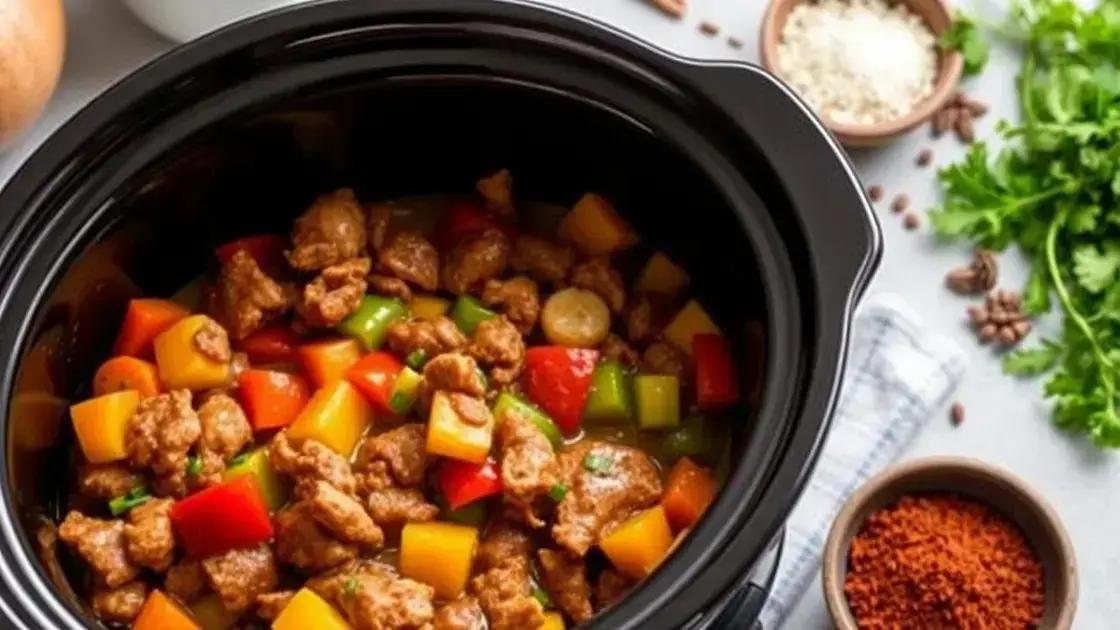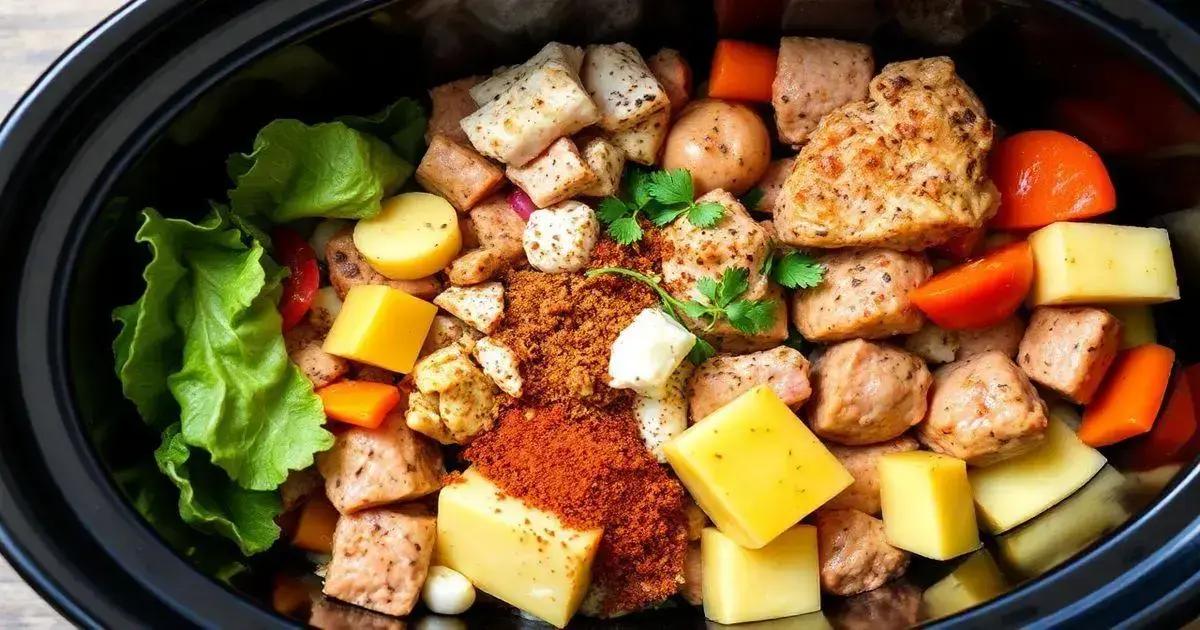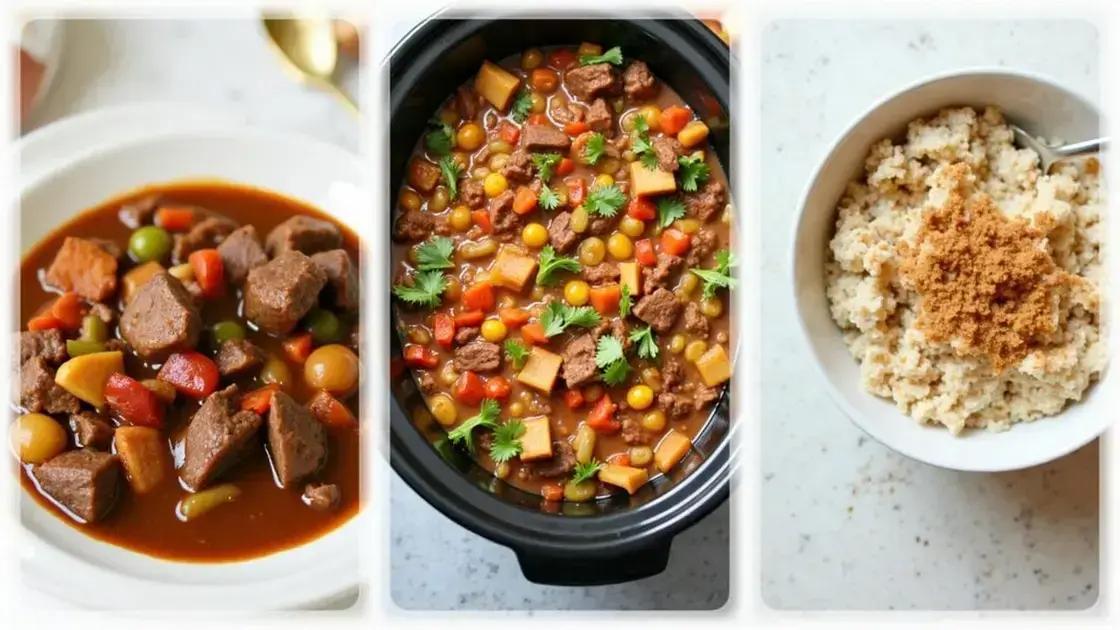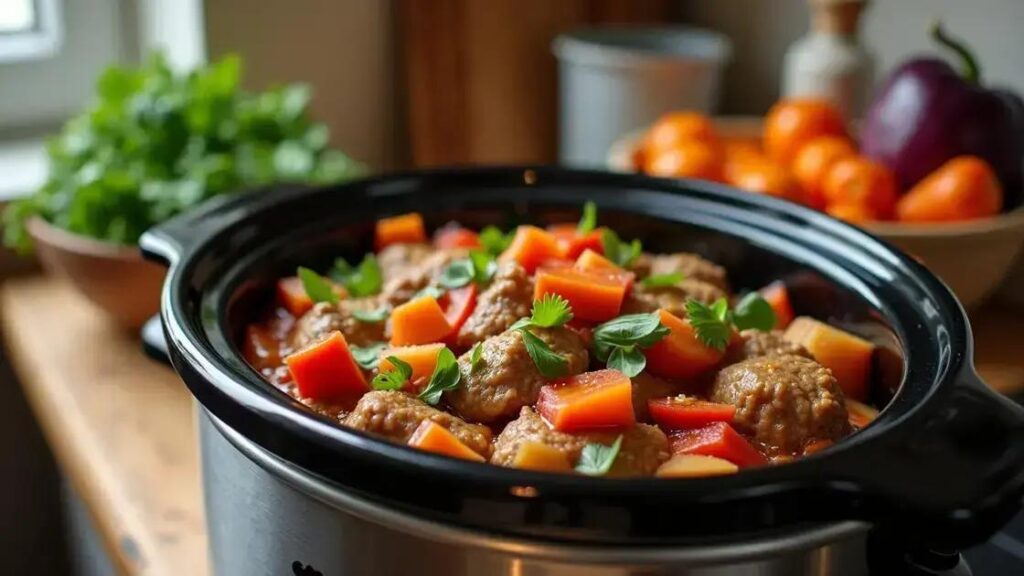Slow-cooked meals offer significant nutritional benefits as they retain essential vitamins and minerals, enhance flavors, and make preparing healthy, delicious dishes easy. Incorporating slow cooking into your lifestyle can be achieved through meal planning, using a reliable slow cooker, and experimenting with a variety of recipes that suit all tastes.
Slow-cooked meals offer exceptional benefits for nutritional density, enhancing both flavor and health. This cooking method allows nutrients to seep into the food, creating dishes that are not only delicious but also packed with vitamins and minerals. In this post, we’ll explore the various aspects of slow cooking, from understanding what it entails to the incredible nutritional advantages it brings. Learn how to incorporate easy recipes into your daily routine and elevate your meals with the richness of slow cooking.
What Are Slow-Cooked Meals?

Slow-cooked meals are dishes prepared using a technique that involves cooking food at low temperatures over an extended period. This method is often used with various types of ingredients, including meats, vegetables, and grains. The cooking time can last from several hours to even an entire day, depending on the recipe and ingredients.
When food is slow-cooked, it allows the flavors to develop fully, providing a rich and satisfying taste. The slow cooking process typically uses lower heat, which helps in breaking down tough cuts of meat, making them tender and juicy. This gentle cooking method ensures that the nutrients in the ingredients are retained, providing a nutritional boost to each meal.
How Slow Cooking Works
Slow cookers, also known as crock-pots, are the most common appliances used for this cooking style. They create a controlled environment where the ingredients simmer gently. As the food cooks, moisture is retained, preventing it from drying out. This is particularly beneficial for dishes like stews and casseroles, where the flavors meld together.
Common Ingredients Used
Almost any ingredient can be used in slow cooking. Popular choices include:
- Meats: Beef, chicken, pork, and lamb are commonly used.
- Vegetables: Carrots, potatoes, onions, and bell peppers enhance flavor and nutrition.
- Legumes: Beans and lentils add protein and fiber.
- Grains: Rice and quinoa can also be cooked in slow cookers.
This versatility makes slow-cooked meals incredibly appealing to home cooks who enjoy experimenting with various ingredients.
Nutritional Benefits of Slow Cooking

Nutritional benefits of slow cooking include a variety of advantages that contribute to a healthier diet. This cooking method is ideal for preserving and enhancing the nutrients found in food. When meals are cooked slowly at low temperatures, vitamins and minerals are less likely to be destroyed compared to high-heat cooking methods.
For example, slow cooking allows for the gentle breakdown of tough fibers in meats and vegetables, which can improve texture and digestibility. Herbs and spices also have a chance to infuse their flavors and health benefits into the dish, making each bite both delicious and nutritious.
Retaining Nutrients
One of the most significant advantages of slow cooking is the way it retains nutrients. Unlike boiling, where water-soluble vitamins can leach out, slow cooking traps moisture and keeps these nutrients within the food. This is particularly beneficial for:
- Vegetables: Slow cooking retains vitamins A, C, and K.
- Meats: Slow cooking helps maintain essential amino acids.
- Legumes: Nutritional content improves, making them a great source of protein and fiber.
Enhanced Flavor
Slow cooking allows flavors to develop and deepen over time. Meals often become richer and more vibrant than those cooked quickly. This can encourage the use of more wholesome ingredients like beans, lentils, and various vegetables, contributing to a balanced diet. Preparing foods slowly can lead to less reliance on unhealthy additives, preservatives, or excess salt.
Healthier Fats
When slow cooking, you often use healthy fats, such as olive oil or avocado oil, which can enhance the nutritional profile of your meals. These fats help absorb fat-soluble vitamins, making them more bioavailable to the body. Additionally, using lean cuts of meat or plant-based proteins in slow-cooked dishes makes for heart-healthy meals.
Easy Slow-Cooked Recipes

Easy slow-cooked recipes are perfect for those who want to enjoy delicious, home-cooked meals without spending all day in the kitchen. Here are three simple recipes that anyone can try!
1. Hearty Beef Stew
This classic dish is not only comforting but also packed with nutrients. Combine the following ingredients in a slow cooker:
- 2 pounds of beef stew meat, cut into chunks
- 4 cups of chopped vegetables (carrots, potatoes, and onions)
- 4 cups of beef broth
- 1 can of diced tomatoes
- 2 cloves of garlic, minced
- 1 teaspoon of dried thyme
Cook on low for 8 hours or high for 4 hours. Serve hot for a satisfying meal!
2. Vegetable Chili
This vegetarian option is delicious and filling. Mix these ingredients in your slow cooker:
- 1 can of black beans, drained
- 1 can of kidney beans, drained
- 1 can of corn, drained
- 1 can of diced tomatoes
- 1 bell pepper, chopped
- 1 onion, chopped
- 2 tablespoons of chili powder
Set on low for 6 hours or high for 3 hours. Enjoy this flavorful chili with whole-grain bread.
3. Apple Cinnamon Oatmeal
Start your day right with a warm bowl of oatmeal. Here’s how to make it:
- 2 cups of rolled oats
- 4 cups of water or milk
- 2 apples, chopped
- 1 teaspoon of cinnamon
- 1 tablespoon of brown sugar (optional)
Combine all ingredients in the slow cooker and cook on low for 6-8 hours. Your breakfast will be ready when you wake up!
These easy slow-cooked recipes can help you enjoy nutritious meals without a lot of fuss. From hearty stews to sweet breakfast options, there’s something for everyone to love!
Incorporating Slow Cooking into Your Lifestyle

Incorporating slow cooking into your lifestyle can be an easy way to enjoy healthier, homemade meals without much effort. Here are some practical tips to help you get started.
Create a Weekly Meal Plan
Planning your meals ahead can save time and reduce stress during busy weeks. Set aside time each week to think about what you want to eat. Choose 2-3 slow-cooked recipes that can be made in batches. This way, you can enjoy leftovers and maximize your time.
Choose the Right Equipment
Using a reliable slow cooker is essential. Invest in a model that fits your needs, whether it is a basic one or a programmable version that allows you to set cooking times. Optionally, a multi-cooker can also provide added versatility for quick meals on busy days.
Prep Ingredients Ahead of Time
To make cooking easier, do some ingredient prep during the weekend. Chop vegetables, marinate meats, and measure spices. Store these in containers in the fridge to save time on cooking days. Having everything ready means you can simply throw it in the slow cooker and start cooking!
Make it a Family Affair
Involve your family in the cooking process. Assign tasks such as chopping, measuring, or stirring. This not only makes cooking fun but also teaches kids valuable skills. You can create great memories together while enjoying meals made with love.
Experiment with Flavors
Don’t hesitate to try new ingredients and recipes. Slow cooking allows for creativity. Explore different herbs, spices, and sauces to find your family’s favorites. Consider theme nights like Italian or Mexican, featuring slow-cooked dishes that represent those cultures.
Embracing Slow Cooking for a Healthier Lifestyle
Integrating slow cooking into your daily routine presents numerous benefits, from retaining nutrients in your meals to saving time during your busy week. You can easily create hearty, flavorful dishes that satisfy the whole family while boosting your nutrition.
By planning ahead, involving your family in the cooking process, and experimenting with a variety of ingredients, you’ll discover how simple it is to make healthy eating enjoyable. With easy slow-cooked recipes at your fingertips and the right strategies to streamline cooking, you can lead a healthier lifestyle without compromising on flavor.
So why wait? Start incorporating slow cooking into your life today, and unlock the potential for delicious meal preparation that fosters family bonds and promotes better nutrition.
FAQ – Frequently Asked Questions About Slow Cooking
What are the benefits of slow cooking?
Slow cooking retains nutrients, enhances flavor, and makes meals healthier. It allows tough foods to become tender and flavorful.
How can I start incorporating slow cooking into my routine?
Begin by planning your meals, prepping ingredients ahead of time, and using a reliable slow cooker. Experiment with easy recipes.
Can I use frozen ingredients in slow cooking?
Yes, you can use frozen ingredients, but it’s best to thaw them first for even cooking and better flavor integration.
What types of meals can I prepare with a slow cooker?
You can prepare a variety of meals, including soups, stews, casseroles, and even desserts like oatmeal and fruit compotes.
Is slow cooking energy efficient?
Yes, slow cookers use less energy than an oven, making them a more efficient option for meal preparation.
How do I know when my food is ready?
Most slow cooker recipes provide specific cooking times. For meats, ensure they reach the appropriate internal temperature for safety.













